OpeningupSlovenia kick-starts “Openingup” in the Balkans
Guest - December 11, 2015 in featured, guestpost, oer, world
OpeningupSlovenia was launched on April 23, 2014 at the OCW Consortium Global Conference 2014 in Ljubljana. Androulla Vassiliou European Commissioner, Directorate General for Education and Culture was present at the launch and stressed the importance of the conference and OpeningupSlovenia as a bold and innovative attempt on how to place Europe at the forefront of the global educational map. “I am delighted that Slovenia has adopted a national strategy to promote open educational resources. This complements the Commission’s own ‘Opening up Education’ initiative. Our shared objective is not to replace traditional textbooks or face-to-face teaching, but to make the most of the opportunities created by digitisation and new technologies. Europe cannot afford to lag behind its international rivals if we want to ensure our young people have the skills needed in the modern world. I hope that this Slovenian initiative is successful and inspires similar schemes in other Member States,” commented Commissioner Vassiliou.
The idea was quite simple in theory but complicated in practice, namely OpeningupSlovenia is an unprecedented attempt to create a unique experimental platform – an Open Member State – that will be adequately large, open and flexible to provide for horizontal and vertical links within the education system involving education, research and business institutions, to stimulate the development of new open education frameworks by targeting different groups and including experimental research and users’ realistic assessment. The idea is to attract researchers, companies, and the public eye to come to Slovenia and learn from its mistakes and successes.
Rather than presenting all the achievements of 2015 on research, government and policy level, this blog is an attempt to present s specific development on the regional scale in South East Europe (SEE).
On September 18 the OpeningupSlovenia members together with the UNESCO Chair on Open Technologies for OER and Open Learning, Knowledge 4 All Foundation, Microsoft Bosnia and the Ministry of Education, Science and Youth Canton Sarajevo organized a “best practice transfer” event in Sarajevo, Bosnia and Herzegovina. The conference was a brand name conference that Knowledge 4 All Foundation is running with researches and governments across Europe in regions that are opening to open education, ICT and AI. The main idea was to identify open educational practices and synergies and incentives that could potentially lead to a kick-start of new “OpeningupMembers” initiatives in the Balkan region and stimulate the formation of Openingup Croatia, Bosnia, Serbia and Macedonia or a mutual initiative in the form of OpeningupBalkans.
The event was well advertised with a substantial turnout of 200 primary and secondary teachers, headmasters and ICT companies. It was designed in a way so as to start with a potential strategy for the region and moving on to technologies and research and finishing with exemplar projects and an overview of the state of the art in open education in Croatia, Serbia and Macedonia.
 Figure 1: Gordana Jugo, Elena Stojanovska and Ivan Obradović presenting the region’s best practices in open education
Figure 1: Gordana Jugo, Elena Stojanovska and Ivan Obradović presenting the region’s best practices in open education
Azemina Njuhovič (video) as the governmental representative of Canton of Sarajevo, introduced and welcomed and decisively stated that open education might create new opportunities in the Bosnian educational system. The UNESCO Chair (video) presented its activities from artificial intelligence and ICT for open education and introduced the idea that the SEE region has the potential of creating new technologies and practices and a good regional starting point in adopting already existing ones in terms of tools for language and created OER. Gasper Hrastelj (video) presented the general UNESCO perspective on open education and was followed by a research section with a presentation by Kostadin Cholakov on the TraMOOC – Translation for Massive Open Online Courses project (video) and Alfons Juan-Ciscar (video) highlighting how breaking the language barrier can be achieved via a H2020 project. Piet Grymonprez and Mihajela Crnko moved on to present MyMachine (video), an innovative idea where children draw their dream machine, university student create the design and high school students create the machines with the help of their mentors and industry support.
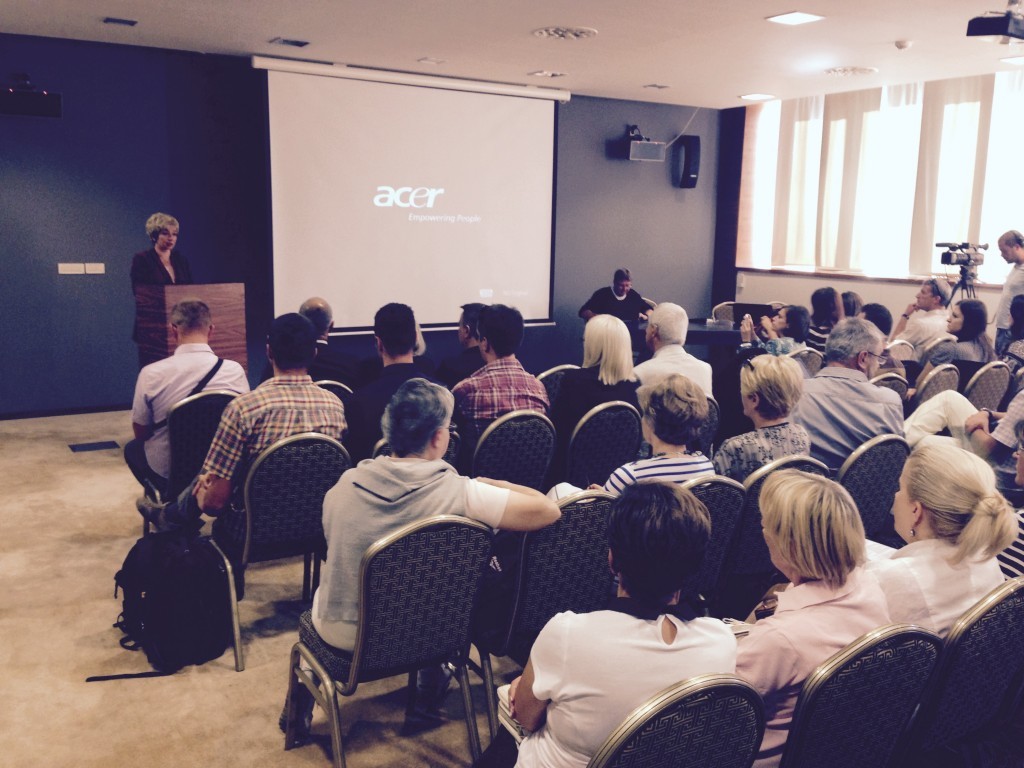 Figure 2: Azemina Njuhovic, Ministry of Education and Science, Canton Sarajevo, Bosnia-Hercegovina
Figure 2: Azemina Njuhovic, Ministry of Education and Science, Canton Sarajevo, Bosnia-Hercegovina
Perhaps the most meaningful part of the event was delivered in the last section where the Croatian (video), Serbian (video) and Macedonian (video) perspectives on open education. It quickly became apparent that all the three countries have a very good and interesting selection of best practices, mostly focusing on learning environments in Croatia, pioneering creation of OER in Serbia and managing OER repositories in Macedonia. The main feedback and prevailing attitude from attendees and speakers during coffee brakes and QA sessions was that the region was ready and in need for new investment and stepping to a higher organisational level in addressing their respective governments with an “Openingup” value proposition.
The 2nd Internet of Education Conference (IOE 2015) in Sarajevo provided an opportunity to highlight the importance of the following in open education: 1) technical developments in support of open learning environments (as indicated in the EC communication Opening up Education), 2) the value of multi-lingual tools in increasing access to open education and MOOCs, in particular the tools developed within the TraMOOC, EMMA, TransLectures and Active2Trans projects and OER gathering projects like ExplorEdu, and ICT in schools via MyMachine, 3) the smart partnership across different stakeholders in education from primary and HEI to civil society, governments and companies as reflected in the OpeningupSlovenia initiative. This was a great opportunity to discuss and design best practice transfer from Slovenia and Europe, stimulate a strategy for new regional “Openingup” initiatives and present what is already being developed in the SEE region.
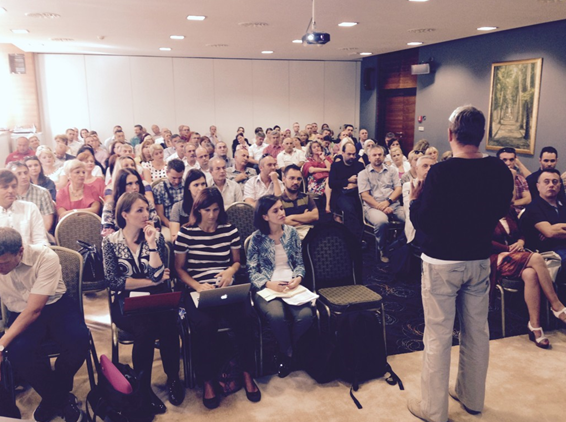 Figure 3: Mitja Jermol, UNESCO Chair in OER
Figure 3: Mitja Jermol, UNESCO Chair in OER
Since the conference was organized under the auspices of the UNESCO Chair in OER we also received UNESCO patronage for this specific event. It was felt that the 2nd Internet of Education Conference 2015 will have regional significance and outreach to participants from Slovenia and neighbouring countries from Central, Eastern and South-eastern Europe. The proposed activity would cover geographical regions that need a boost in the usage and understanding of OERs as UNESCO recognized them at the 1st Global OER Forum in 2002 where the term Open Educational Resources (OER) was adopted. Additionally this region is in need of policy changes for a competitive inclusion towards more developed universities.
This blog post was written by Davor Orlic from OpeningupSlovenia.
 Open Education Working Group
Open Education Working Group 




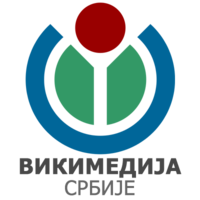
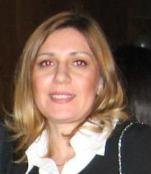
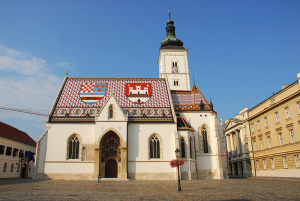
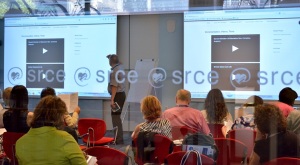
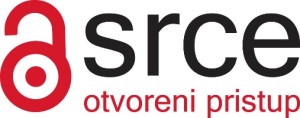
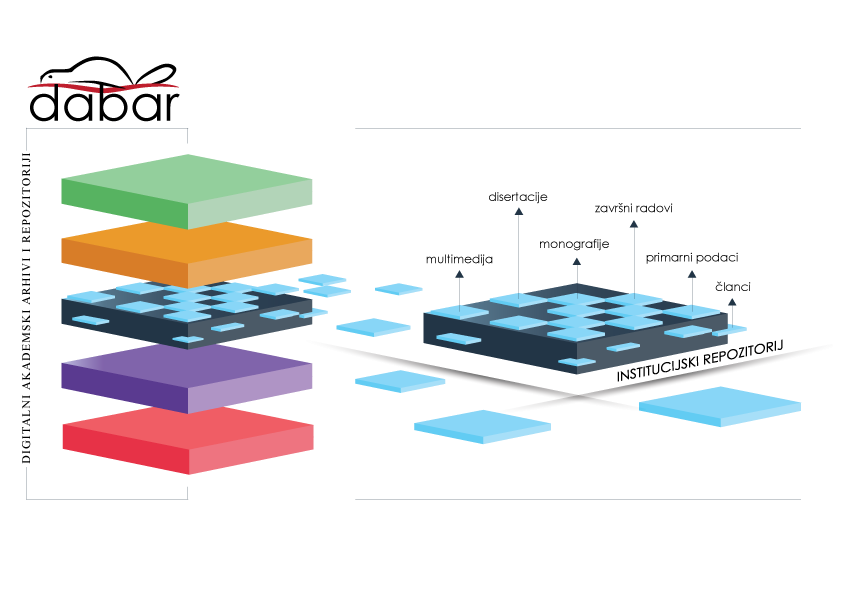
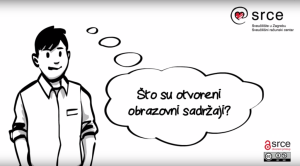
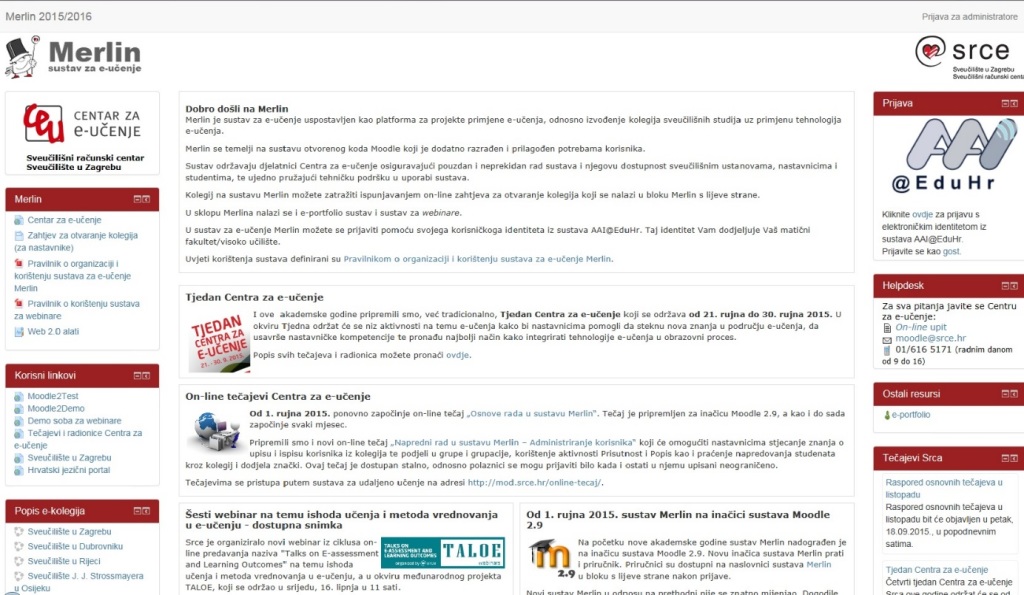
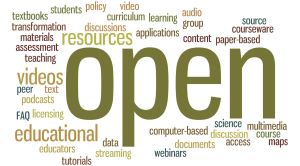
 Tijdens de afgelopen zomervakantie is de eerste versie van het
Tijdens de afgelopen zomervakantie is de eerste versie van het 



